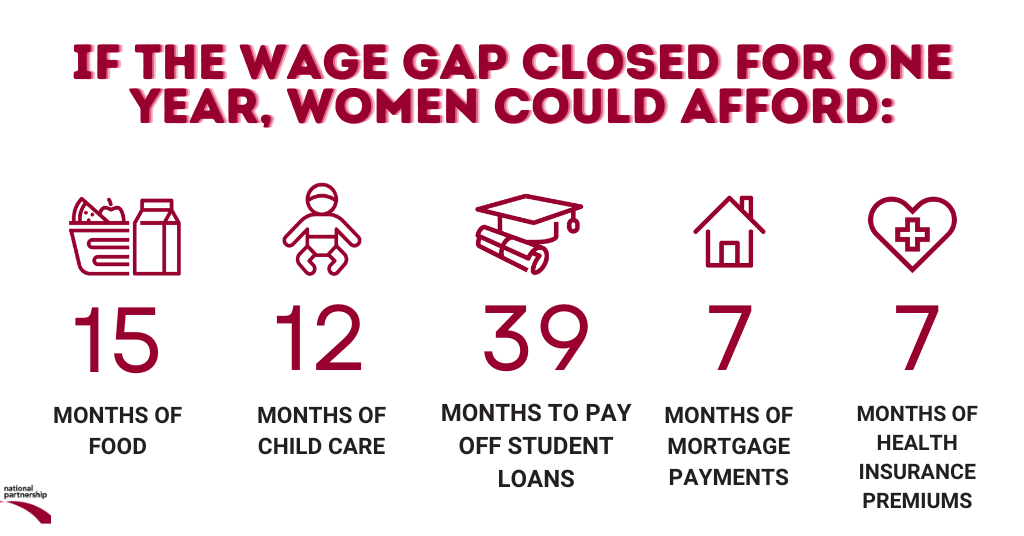Statement of Jocelyn Frye, President of the National Partnership for Women & Families WASHINGTON, D.C. – April 23, 2024 – Today, the Biden administration published a final rule to support higher pay and better work-family balance for workers by...

Disability Economic Justice Systems Transformation Guide
In order to plot a more intentional course toward systemic change that achieves the inclusion, access, liberation and economic health and wellbeing of disabled women and families, we’re introducing systems transformation guides for disability economic justice public policy.
What’s the Wage Gap in the States?
You deserve to be paid fairly. It’s that simple.

The Wage Gap #IRL (In Real Life) for Women of Color
Women of color are subjected to wide gender wage gaps due to experiencing the double bind of sexism and white supremacy in the United States and how our country systematically devalues women of color and their labor.

America’s Women and the Wage Gap
Every state has a gender wage gap, and it persists regardless of industry and education level and within occupations.
Rejecting Business as Usual
Black women workers are a critical backbone of the economy. As demonstrated during the COVID-19 pandemic, women were the majority of essential workers who continued to work during the pandemic, providing vital services and sustaining the nation’s economy throughout the public health emergency. Black women disproportionately work in many of these essential roles
How Data Collection Can Help Close the Wage Gap
While overall wage gap measures provide important insight, digging deeply into differences by race, industry, occupation and more is critical.
Partnership in Action: An Employer Guide to Building Gender Equity in the Workplace
“Partnership in Action: An Employer Guide to Building Gender Equity in the Workplace” is a blueprint for employers looking to promote and implement equitable policies at their companies, and provides recommendations that would help women, especially women of color, return to and stay in the labor force.
Historic Investments in Good Infrastructure Jobs Can’t Leave Women Behind
The bipartisan Infrastructure Investment and Jobs Act (IIJA) provides one of the most significant investments in the creation of good jobs in recent years. However, without intentional efforts to address occupational segregation in the key industries funded by the law, women could miss out on more than a million jobs in the next decade.

